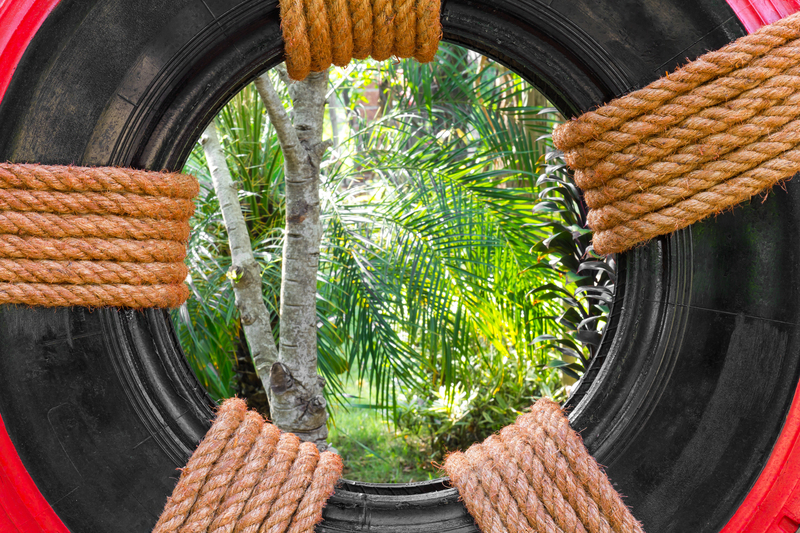Innovative Ways to Educate Kids on Recycling
Teaching children about recycling and waste reduction is one of the most important responsibilities for parents, educators, and communities today. Raising environmentally conscious children will not only create lifelong habits of sustainability but also ensure a healthier planet for future generations. But how do we make the subject of recycling engaging and memorable for kids in an era of smartphones and short attention spans?
In this extensive guide, we'll explore creative strategies to teach kids about recycling, blending fun, hands-on activities with easy-to-understand educational principles. These innovative approaches will foster curiosity, responsibility, and passion for caring for the environment.
Why Is Recycling Education Important for Children?
Before diving into the methods, it's crucial to underline why recycling education for children is vital:
- Develops Sustainable Habits Early: Kids who learn the importance of recycling grow up making eco-friendly choices.
- Reduces Environmental Impact: Youngsters can influence household recycling and motivate friends and family to follow suit.
- Builds Environmental Stewardship: Early education instills a sense of responsibility to take care of the earth.
- Fosters Critical Thinking: Deciding what can and cannot be recycled nurtures decision-making skills.

Engaging, Innovative Methods for Teaching Kids about Recycling
1. Storytelling and Books
Children relate to stories, and many picture books explain recycling concepts in imaginative ways. Story-driven learning helps kids connect emotionally with the topic and understand why recycling matters.
- Choose age-appropriate books: Titles like "Michael Recycle" or "Why Should I Recycle?" break down complex ideas with humor and vibrant illustrations.
- Interactive storytelling: Encourage kids to act out recycling adventures or even create their own recycling superhero story.
- Discuss after reading: Ask questions that inspire critical thinking, such as "What happens if people don't recycle?"
2. Recycling Games and Challenges
Gamification is a powerful tool for motivating children to participate in eco-friendly behaviors.
- Sorting Races: Set up bins labeled "Plastic," "Paper," "Metal," and "Trash" and see who can sort items the quickest and most accurately.
- Recycle Scavenger Hunts: Give kids a list of recyclable items to find around the house or school.
- Online Recycling Games: Digital apps and games like Recycle Roundup or EcoKids teach kids about recycling processes using interactive technology.
Games make learning about recycling fun, reinforce correct behavior, and foster teamwork and healthy competition.
3. DIY Upcycling Art Projects
Transforming "waste" into new artwork or functional items helps children see the value of recyclables and stimulate their creativity.
- Recycled Bottle Planters: Turn plastic bottles into plant pots for herbs and flowers.
- Collage Creations: Use old magazines, newspapers, and wrappers to make murals or greeting cards.
- Milk Carton Bird Feeders: Show how common waste can have a second life while providing for wildlife.
Art-based recycling education provides kids with a hands-on learning experience and immediate positive feedback.
4. Recycling-Themed School Clubs and Classroom Initiatives
Establishing a recycling club at school empowers kids to become leaders in the sustainability movement.
- Classroom Recycling Ambassadors: Assign students to monitor recycling bins, collect recyclables, or educate classmates on proper sorting.
- Weekly Recycling Reports: Have students track how much material has been recycled weekly, turning results into colorful charts.
- School-Wide Recycling Competitions: Classes compete to see who can recycle the most, winning an eco-friendly prize.
These group recycling activities turn eco-friendly behaviors into a source of pride and social connection.
5. Field Trips and Real-World Experiences
Seeing recycling in action is a powerful motivator for children. Organize educational field trips such as:
- Recycling Center Visits: Children watch how recyclable materials are sorted, processed, and transformed into new products.
- Community Clean-Up Days: Participating in local clean-up events allows kids to witness firsthand the impact of waste and recycling.
- Compost Facility Tours: Teach about organic waste recycling and the benefits of compost for gardens and farms.
Real-world exposure deepens understanding and shows kids that their actions have meaningful results.
6. Science Experiments about Recycling and Decomposition
Simple science projects about recycling can leave lasting impressions. Try:
- Decomposition Experiments: Bury different waste items (banana peel, newspaper, plastic wrapper) in soil and track their breakdown over weeks.
- Water Filtration Demos: Use recycled materials like sand and gravel to filter water, demonstrating both recycling and natural purification concepts.
- Build a Mini Compost Bin: Let children see how food scraps turn into rich soil, reinforcing the benefits of recycling organic waste.
These hands-on recycling activities will ignite curiosity and reveal the science behind sustainability.
Powerful Digital Tools and Apps for Recycling Education
Embracing technology can enhance the ways we teach kids about environmental responsibility. Here are some digital resources:
- Kid-Friendly Recycling Apps: Apps like Green Guardians or Super Sorter offer interactive challenges related to sorting, reusing, and recycling various materials.
- Online Learning Modules: Websites such as National Geographic Kids and EPA's Recycle City teach children through virtual tours, puzzles, and quizzes.
- Augmented Reality Experiences: Emerging AR apps allow kids to "see" the journey of recyclable items from their bins to being turned into new products.
- Interactive YouTube Channels: Subscribe to channels dedicated to environmental education, such as SciShow Kids or Earth Rangers, which use animation and humor to explain recycling concepts.
These digital innovations for recycling education help reach modern learners and make lessons stick.
Cultivating Recycling Habits at Home
Family Recycling Challenges
Make recycling a collaborative family goal with monthly recycling challenges. Examples include:
- Zero Waste Week: Challenge the family to minimize disposable waste for one week, brainstorm alternatives, and celebrate successes.
- Home Sorting Station: Set up labeled recycling bins in the kitchen and encourage kids to be vigilant in proper sorting.
- Upcycle Family Night: Choose a craft or DIY project that reuses household waste, and share creations on social media to inspire others.
Active family participation demonstrates that recycling isn't a solo task, but a team effort that can be fun and rewarding.
Recycling Rewards Systems
Positive reinforcement works wonders! Implement a simple rewards system to encourage consistent recycling. For example:
- Sticker Charts: Kids earn a sticker each time they correctly sort recyclables, working toward a special prize.
- Environmentally-Friendly Treats: Rewards could be an extra story at bedtime, a favorite activity, or a small eco-gift like seed packets.
- Responsibility Rotations: Rotate recycling-related chores among siblings to ensure everyone gets involved.
This motivational approach to recycling can reinforce positive behavior and create lasting habits.
Creative Visual Reminders
Visual cues help reinforce learning and keep kids engaged. Try:
- DIY Recycling Posters: Have kids draw posters showing what can and cannot be recycled; display them prominently near bins.
- Clear Bin Labels: Use pictures and bold colors so even non-readers can participate.
- Progress Trackers: Create a visible chart showing the family's recycling efforts over time.
Addressing Common Recycling Misconceptions
Children may believe some recyclable materials are "trash" or be confused by complex rules. Addressing these misconceptions is key:
- Demonstrate Exceptions: Show why some items, like greasy pizza boxes or certain plastics, are not recyclable.
- Discuss Contamination: Teach children to rinse food containers before recycling to prevent contamination.
- Clarify Symbols: Explain common recycling symbols, such as the numbers on plastics.
Clear, honest communication corrects confusion and empowers kids to make wise choices.

The Role of Schools, Communities, and Organizations
School Recycling Programs
Innovative schools have developed comprehensive programs to make recycling a part of daily life. Examples include:
- Recycling Mascots: School mascots visit classrooms to encourage recycling in a fun, memorable way.
- Peer Education: Older students mentor younger peers in correct recycling practices, fostering a culture of sustainability.
- Special Awareness Days: Hold Earth Day celebrations, recycling fairs, or recycling awareness weeks with games, quizzes, and art contests.
Community Partnerships
Local businesses, city governments, and nonprofits often provide resources, educational materials, and collection drives. Connect with:
- Recycling Centers: For tours, classroom presentations, or support for school recycling days.
- Parks and Recreation Departments: For organizing clean-up efforts and composting workshops.
- Libraries and Museums: Many offer environmental education programs or themed story-times.
Encouraging Advocacy and Leadership
Empower kids to be youth recycling advocates within their schools and communities. Encourage them to:
- Present at School Assemblies: Share their knowledge with peers.
- Start Petitions: Advocate for more recycling bins or better signage at playgrounds and sports fields.
- Lead by Example: Model proper recycling at home, at school, and in public spaces.
Conclusion: Creating Lifelong Eco-Champions
Educating children on recycling doesn't have to be limited to dry facts or lectures. By adopting innovative, interactive, and fun recycling education techniques -- from upcycling projects and games to field trips and digital tools -- we can nurture a generation that values and defends our environment. Start today by experimenting with some of these imaginative strategies, and witness kids transform from passive consumers to passionate, responsible stewards of our planet.
Every recycled bottle, sorted piece of paper, and educated young mind brings us one step closer to a greener, cleaner world. Let's work together to ensure that the lesson of recycling is one that not only sticks but inspires action for years to come.